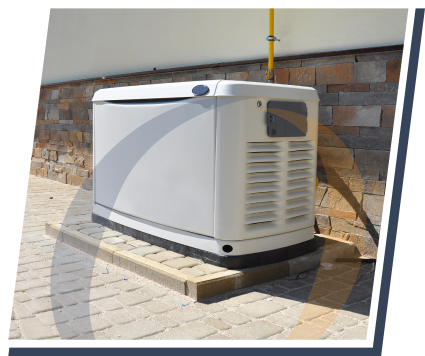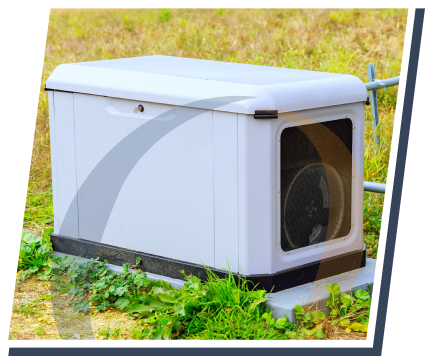Generator installation services in Jackson, TN, can be a great investment for any smart homeowner. You can finally say goodbye to dealing with unfortunate power outages. Instead, home generator installation will ensure a seamless power supply, even when your local power grid goes down.
Home Generator Installation in Jackson, TN
New Generator Purchase And Installation

Exceptional Home Generator Installation Services
Most people are familiar with portable generators for tailgating or temporary lighting during construction. However, standby or whole-home generators are a great option to power your home whenever your local power grid goes down. This is a permanent investment that you can make to enhance your safety and comfort.
When selecting your whole-home generator, there are various factors you’ll want to consider. One of the most important is the type of fuel that your generator uses. You can purchase a standby generator that uses natural gas, propane, or even diesel.
If you have natural gas at your home, you can pipe the gas to the generator from the city’s main distribution line for continuous use. However, if you opt for propane or diesel fuel, you’ll need an on-site storage tank to supply power for long power outages.
Another essential factor to consider is the wattage of your new generator. Generators come in a wide variety of wattages, with a higher wattage translating to more power for your home. It’s a good idea to think about the appliances or items you want to power with your generator whenever the local grid goes down.
These include appliances like your HVAC system, sump pump, lights, and so forth. It’s crucial to get a generator with adequate wattage to power what you need so you’re comfortable during the next power outage.
Two other factors include the size of your unit and its placement on your property. It can be helpful to check with local zoning and HOA rules to ensure you’re choosing a unit that fits them. Ideally, you want to place your generator at a location that minimizes noise for both you and your neighbors. Some other notable factors to consider include brand, warranty coverage, upfront price, smart features, automatic transfer switch, and operational noise level.
- Powering home security systems
- Appliance protection
- Higher home value
- Peace of mind
- Continuous lighting

Generator Installation Company in Jackson
E&W Electrical Solutions offers exceptional home generator installation services for the Jackson community. We’ve been serving the community since 1980 and offer top-quality brands, like Generac, alongside the best workmanship for every brand. Our Jackson electricians strive to always exceed your expectations and offer upfront, transparent pricing.

If you need professional generator installation services in Jackson, phone E&W Electrical Solutions for exceptional help.